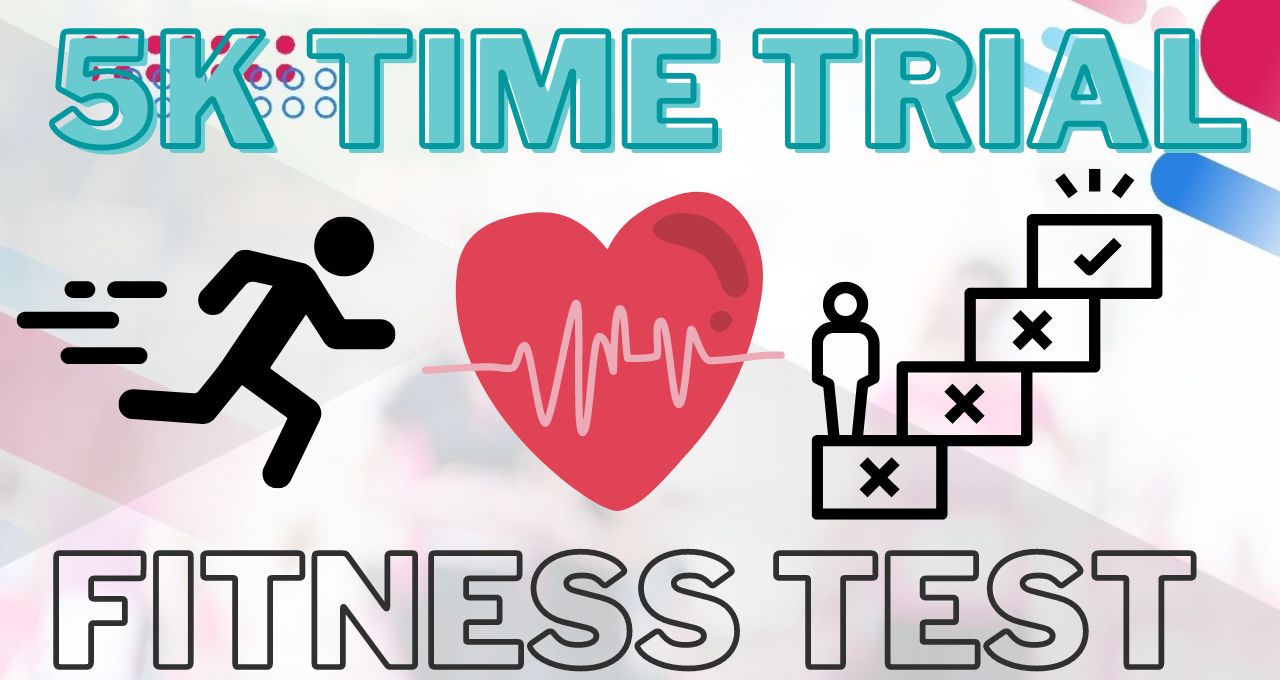Your cart is currently empty!

Mastering the 5K Time Trial: A Comprehensive Guide to Testing Your Running Fitnes
/
How to Run a 5K Time Trial to Test Your Fitness
Running a 5K time trial is an excellent way to assess your current fitness level, track progress, and set future training goals. Whether you’re a seasoned runner or a beginner, a well-executed time trial can provide valuable insights into your performance. Here’s a comprehensive guide to running a 5K time trial effectively.

Preparation
- Set a Date and Time: Choose a date and time that fits well with your training schedule and allows for optimal performance. Avoid scheduling your time trial immediately after a hard workout or a long run. Early mornings or late afternoons are typically ideal as temperatures are cooler, and you can perform at your best.
- Select a Route: Pick a route that is flat and free from traffic interruptions. A local track, park, or trail with measured distances is ideal. Ensure the course is accurately measured to ensure the reliability of your results.
- Gear and Nutrition: Wear comfortable running shoes and attire suitable for the weather conditions. Hydrate well the day before and have a light, easily digestible meal 1-2 hours before the trial. Avoid heavy or unfamiliar foods that might upset your stomach.
- Warm-Up: A proper warm-up is crucial. Spend 10-15 minutes on dynamic stretches and light jogging. Include some strides (short bursts of faster running) to prepare your body for the intensity of the trial.

Execution
- Pacing Strategy: Start at a controlled pace to avoid burning out early. Aim to run the first kilometer slightly slower than your target pace, then gradually increase your speed. Consistent pacing can help you avoid the common mistake of starting too fast and struggling in the later stages.
- Mental Focus: Stay mentally focused and positive throughout the run. Break down the distance into manageable segments, focusing on reaching each kilometer mark. Positive self-talk and visualization techniques can help maintain motivation and drive.
- Monitor Your Form: Pay attention to your running form. Keep your shoulders relaxed, arms swinging naturally, and maintain an upright posture. Efficient form can improve your speed and reduce the risk of injury.
- Push Through the Pain: The last kilometer of a 5K is often the toughest. Dig deep and push through the discomfort, knowing the finish line is near. Use mental strategies like focusing on your breathing or repeating a motivating mantra.
Post-Run
- Cool Down: After crossing the finish line, spend 10-15 minutes cooling down with light jogging or walking, followed by static stretches. This helps reduce muscle stiffness and aids recovery.
- Record Your Results: Note your finishing time, how you felt during the run, and any observations about your pacing or form. Keeping a training log can help track progress and identify areas for improvement.
- Analyze Performance: Reflect on your performance. Did you start too fast? Were you able to maintain a consistent pace? Did you have enough energy left for a strong finish? Understanding these aspects can help adjust your training and pacing strategies for future runs.
- Recovery: Allow your body adequate time to recover after the time trial. Incorporate rest days, light runs, and cross-training activities like swimming or cycling. Proper recovery is essential to prevent injury and enhance overall fitness.

Incorporating Time Trials into Training
- Regular Assessments: Schedule 5K time trials at regular intervals, such as every 4-6 weeks, to monitor progress. Consistent testing allows you to track improvements and adjust your training plan accordingly.
- Use Data for Goal Setting: Use your time trial results to set realistic and achievable goals. Whether it’s improving your time, building endurance, or refining your pacing strategy, clear goals can enhance motivation and focus.
- Adjust Training Plans: Based on your time trial results, tweak your training plan. Incorporate interval workouts, tempo runs, and long runs to address any weaknesses and build on strengths.
Running a 5K time trial is a valuable tool for any runner. By preparing adequately, executing with focus, and analyzing the results, you can gain deep insights into your fitness and set yourself up for future success. Whether you’re aiming for a personal best or simply assessing your fitness level, a well-planned time trial is an effective way to achieve your running goals. Make every step count and register your runs at a virtual race and motivate yourself to do better 🏃➡️🎉.

